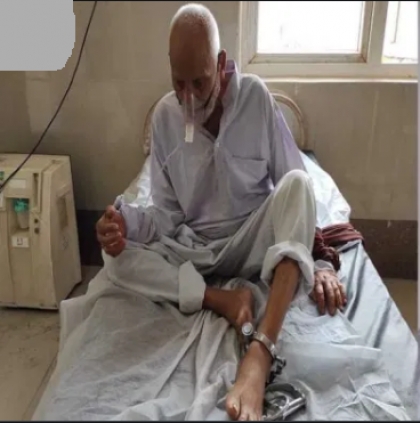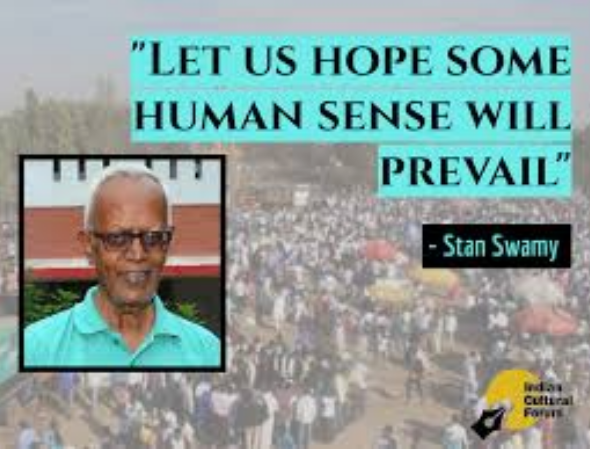استانداردهای مختلف در برخورد با کسانی که در مظان اتهام قرار می گیرند، قوانین و دادگاه ها را در سیستم قضایی کشورهای مختلف دچار مشکل می کند، در هند قانون تادا (TADA) [1] که بسیاری از اقلیت مسلمان تحت لوای آن، دچار رنج فراوان شدند، و قانون دیگری که به یکی از قربانیان آن، ذیلا می پردازیم مشکل ساز شده اند، از این رو، در جهانی زندگی می کنیم که دستگاه قضایی کشورها، کم و یا زیاد، استقلالی که از آب و هوا برای هر محکمه ایی واجب تر است، را این روزها از دست داده اند، و لذا بی اعتمادی بدین سیستم ها اشاعه یافته و از این رو، به صرف محکومیت متهمی، جامعه اش نه تنها از او متنفر نمی شوند، بلکه از اینکه مجرمی، به دام عدالت افتاده است، ناراحت شده و با او همدردی نشان می دهند و...
چرا که ملت ها به درستی فهمیده اند، فاکتورهای بسیاری در رای قضات دادگاه ها دخیلند، که از بیرون از دادگاه، بر رای و نظر قاضی تحمیل می شوند، و رای و نظر قاضی، دیگر برآیندی از قانون و وجدان انسانی قضات نیست، بلکه ناشی از هزار فاکتور سیاسی، امنیتی، مصلحتی، اجتماعی، فردی، جناحی و... دخیل در روند دادرسی هاست، و این آنها هستند که رای نهایی را شکل می دهند، و قاضی بخت برگشته دین و دنیای خود را بر باد داده و به انشا کننده و امضا کننده حکم تحمیلی تبدیل می گردد.
نظام قضایی هند نیز نشانه هایی این چنینی از خود بروز داده است، آنان در کیس ویرانی و تفویض زمین باقی مانده از مسجد ویران شده بابری در ایالت اتارپرادش هند (دعوای بین اقلیت مسلمان و هندوهای افراطی) آبروی خود را به قمار گذاشتند، و اکنون وجدان جامعه هندی، و از جمله فعالین اجتماعی آن کشور، در سوک یکی از فعالین اجتماعی و مدافعین حقوق اقلیت های این کشور نشسته اند، که در چنگال عدالت قضایی این چنینی، در سنین کهولت گرفتار شد، آنقدر نگهش داشتند، تا در این بکش بکش ها تلف شود.
فعالین اجتماعی و... زیادی تلاش کردند تا پدر استن سوامی [2] آزاد شود، اما این امر محقق نگردید، تا در یک لجاجت امنیتی و... در زندان به کرونا مبتلا شد، و آنقدر در این هنگامه ابتلا، سیستم امنیتی هند وقت کشی کردند و او را به بیمارستان، دارو و درمان نرساندند تا بدین بیماری مرد.
پدر استن سوامی، یکی از فعالین حقوق قبایل (عقب مانده ترین سطح اجتماعی هند)، در سن 84 سالگی، پیرترین زندانی، در رابطه با کیس الگار پریشاد یعنی تجمع 35 هزار نفری بود که، در تاریخ 31 دسامبر 2017 در شهر پونا در ایالت مهاراشترا، به مناسبت دویست مین سالگرد نبرد کورگائون بیما، که توسط 260 سازمان NGO برگزار شد، اما به زد و خورد بین نیروهای امنیتی و مردم منجر گردید، بود؛
تجمعی که به تفکرات طبقاتی هندوهای باستان، و تقابلی که بین دالیت ها (یعنی پایین ترین قشر اجتماعی) و برهمنان (روحانیون و یا بالاترین قشر اجتماعی) هندوها وجود دارد، شکل امنیتی به خود گرفت، و به حرکتی بر ضد این نظام کاستی و طبقاتی تبدیل شد، و پلیس پونا این حرکت را به گروه های کمونیستی مسلح مائوئیست منتسب کرد و گروهی را در این رابطه دستگیر و روانه زندان نمود، که از جمله متهمین آن پدر استن سوامی بودند، و اینگونه یک تجمع مسالمت آمیز اجتماعی، به یک کیس امنیتی مبدل، و ایشان، یکی از گرفتاران این کیس بود، و تا مرگ از آن خلاصی نیافت.
اما آنچه این کیس را تبدیل به یک مورد برجسته در مطبوعات هند نمود، مظلومیت اقلیت های مذهبی در هند بود که در خلال قانون جلوگیری از اقدامات غیرقانونی، گرفتار دستگاه امنیتی و اطلاعاتی این کشور می شوند و در بستری از عدم رعایت تشریفات قضایی، مورد ظلم مضاعف واقع می شوند، چرا که این قانون به دستگاه ها قضایی و امنیتی اختیارات بیشتری برای ترک تشریفات قضایی و قانونی می دهد، و به رغم این که این متهم مدعی بود که در دوره مذکور حتی در پونا هم نبوده است، از آن خلاصی نیافت.
اقلیت ها و پیشکسوتان (سیاسی، اجتماعی، علمی و...) به عنوان یک قشر آسیب پذیر، باید مورد احترام و البته از حمایت بیشتری برخوردار شوند، و سیستم ها، قوانین و تربیت اجتماعی به طور کلی، طوری جهت دهی گردد که این گونه افراد کمتر دچار مشکل شوند، پدر سوامی هم در کهولت بسیار زیاد سنی و هم از اقلیت مسیحی بودند، که در این کیس هر دو نادیده انگاشته شد.
"اجازه دهید این امید را داشته باشیم، که روزی انسانیت غالب خواهند شد." پدر استن سوامی
[1] - the Terrorist and Disruptive Activities (Prevention) Act, 1987
[2] - Stanislaus Lourduswamy متولد (26 آوریل 1937) و فوت 5 جولای 2021 که به اختصار استن سوامی نامیده می شد یک روحانی از اقلیت مسیحی کاتولیک در هند بود، که در 8 اکتبر 2020 توسط نهاد امنیتی آژانس بررسی های ملی ( National Investigation Agency) تحت قانون خاص جلوگیری از اقدامات غیرقانونی ( Unlawful Activities (Prevention) Act) دستگیر گردید، و دو روز پیش (14 تیرماه) در اثر کرونا در پیچ و خم دادگاه و قانون خاص مذکور گیر کرد و جان داد، وی در زندان چند روز علایم شدید بیماری را نشان داد، و تلاش وکلا و متهم برای برخورداری از دارو و درمان به جایی نرسید و در آخرین لحظات به بیمارستان منتقل شد که دیگر کار از کار گذشته بود.














